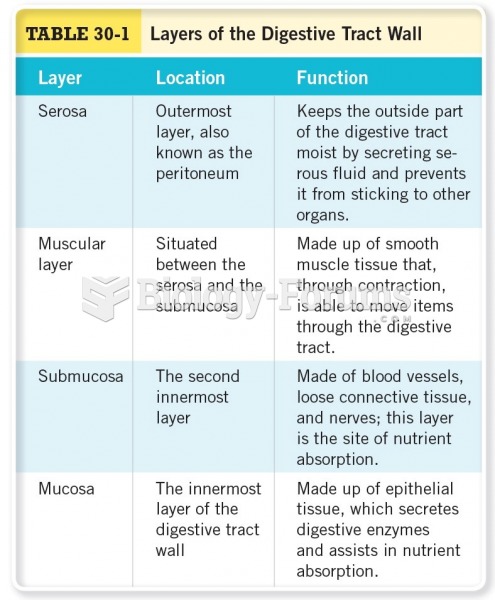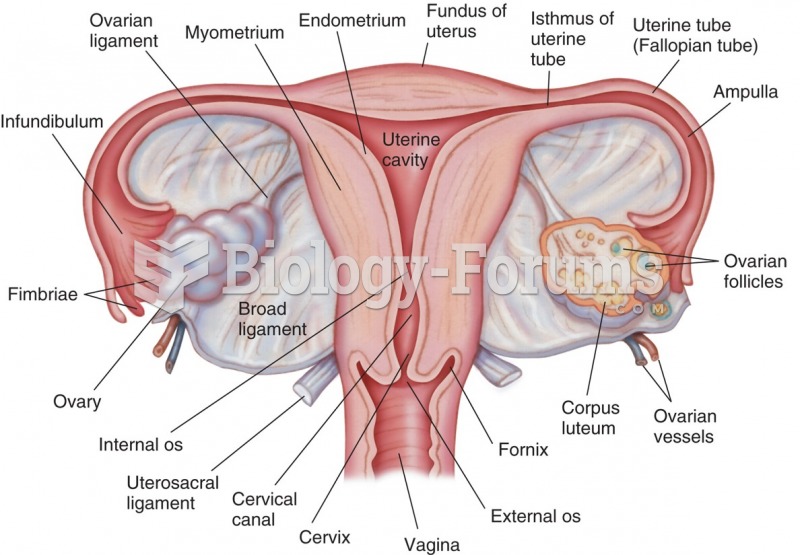|
|
|
The first oncogene was discovered in 1970 and was termed SRC (pronounced "SARK").
The National Institutes of Health have supported research into acupuncture. This has shown that acupuncture significantly reduced pain associated with osteoarthritis of the knee, when used as a complement to conventional therapies.
It is believed that humans initially contracted crabs from gorillas about 3 million years ago from either sleeping in gorilla nests or eating the apes.
About 100 new prescription or over-the-counter drugs come into the U.S. market every year.
Your skin wrinkles if you stay in the bathtub a long time because the outermost layer of skin (which consists of dead keratin) swells when it absorbs water. It is tightly attached to the skin below it, so it compensates for the increased area by wrinkling. This happens to the hands and feet because they have the thickest layer of dead keratin cells.
 A subdural hematoma. A meningeal vein is ruptured and blood has accumulated in the subdural space, p
A subdural hematoma. A meningeal vein is ruptured and blood has accumulated in the subdural space, p
 (A) Each bronchiole terminates in an alveolar sac, a group of alveoli; (B) alveoli encased by networ
(A) Each bronchiole terminates in an alveolar sac, a group of alveoli; (B) alveoli encased by networ





